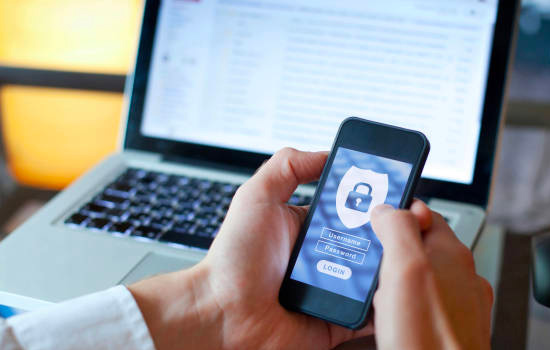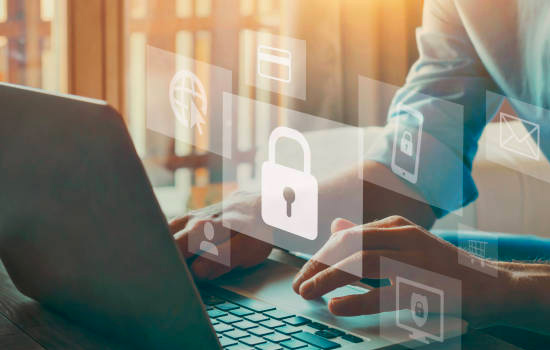Voice over IP (“VoIP”) has become an attractive option for individuals and organisations to leverage cost savings from their networks. By transferring from the PSTN landline environment to an environment based on your network and an Internet connection, you can make toll-free local, national and even international calls. However, moving to an Internet-based service has a sting in the tail, that of increased security risks.
Why You Need Secure Communications

The move to e-commerce, home working, and remote access to systems and data has increased the exposure of corporate and personal data to malware threats and malicious attacks. This includes voice communications. Traditional PSTN communications have been subject to bugging and other interference intended to secure confidential information virtually from the first installations. VoIP is no different.
As a consequence, securing your VoIP calls is essential to protect your communication from eavesdropping, unauthorized access, and potential data breaches. VoIP encryption ensures that your voice data is transmitted securely over the internet.
What is VoIP Encryption?

VoIP encryption ensures that voice data is converted into a scrambled or encrypted format before being transmitted over the internet. This encryption process makes the data unreadable to unauthorized individuals who might attempt to intercept and listen to the conversations. The data is decrypted back to its original form at the receiving end, allowing the intended recipient to understand the communication.
There are two primary types of encryption used in VoIP:
- Signalling Encryption: Signalling encryption protects the data used to establish and maintain the VoIP call. This includes information such as call setup, termination, and other signalling messages. Encryption protocols like Transport Layer Security (TLS) or Secure Sockets Layer (SSL) are commonly used to secure signalling data.
- Media Encryption: Media encryption protects the actual voice data transmitted during the call. The voice data is typically encrypted using protocols like Secure Real-Time Transport Protocol (SRTP) or Datagram Transport Layer Security (DTLS). Media encryption ensures that even if someone intercepts the voice packets, they won’t be able to understand the content without the decryption key.
By implementing strong VoIP encryption, users can enjoy secure and private voice communications, protecting their conversations from potential threats and unauthorized access. It is essential for businesses and individuals who use VoIP to safeguard sensitive information and maintain confidentiality during their communications.
Considerations when Implementing VoIP Encryption

Here are some steps to secure your VoIP calls using VoIP encryption:
- Choose a Secure VoIP Service Provider
Select a reputable and trustworthy VoIP service provider that offers strong encryption protocols for both voice signalling and media streams. Look for providers that use encryption standards like Secure Real-Time Transport Protocol (SRTP) and Transport Layer Security (TLS) for signalling.
- Enable End-to-End Encryption
Ensure that your VoIP service provider supports end-to-end encryption. This means that the data is encrypted on your device, transmitted in an encrypted format, and decrypted only at the recipient’s end. End-to-end encryption prevents intermediaries from intercepting and decrypting your voice data.
- Use Strong Passwords and Authentication
Create strong, unique passwords for your VoIP accounts and avoid using default passwords provided by the service provider. Additionally, enable two-factor authentication (2FA) whenever possible to add an extra layer of security to your account access.
- Encrypt Your Network
Securing your network is crucial for protecting VoIP calls. Use a strong password for your Wi-Fi network and consider using WPA2 or WPA3 encryption protocols for added security. Segment your network to separate VoIP traffic from other internet activities, reducing the risk of unauthorized access.
- Update and Patch Regularly
Keep your VoIP software, applications, and devices up to date with the latest security patches. Regular updates fix vulnerabilities and bugs that could be exploited by attackers.
- Employ a Virtual Private Network (VPN)
Using a VPN can add an extra layer of security to your VoIP calls. A VPN encrypts all your internet traffic, including VoIP data, and routes it through secure servers, making it more challenging for attackers to intercept and decipher your communications.
- Implement Firewalls
Configure firewalls on your network to monitor and control incoming and outgoing VoIP traffic. Firewalls can help prevent unauthorized access to your VoIP system and protect against various types of attacks.
- Avoid Sharing Sensitive Information
Avoid sharing sensitive information, such as credit card details or personal identification numbers during VoIP calls unless you are certain of the security measures in place.
- Train Users on VoIP Security Best Practices
This is very important, and not just for VoIP. Many security breaches happen through inadvertent errors by users.
Educate your users about VoIP security best practices, such as not clicking on suspicious links or opening attachments from unknown sources, and being cautious about sharing sensitive information during VoIP calls.
By following these steps, you can significantly improve the security of your VoIP calls and reduce the risk of unauthorized access or data breaches. Remember that security is an ongoing process, so regular updates and awareness are vital to maintaining a secure VoIP environment.



Leave a Reply